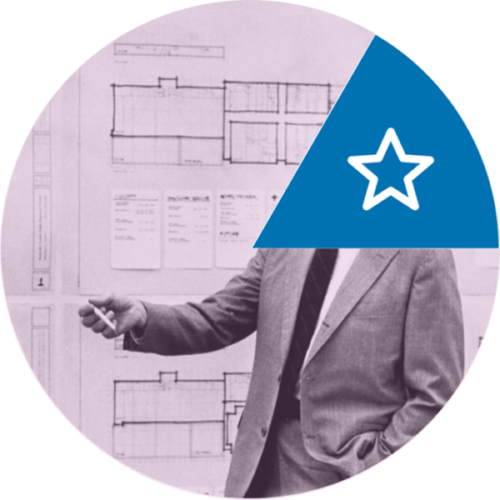Kirk’s Paradigm says, for a great project you’ve gotta have the right owner, the right program, the right site, the right budget, the right contractor, and the right architect. If one of these is missing, the whole project can suffer for it. If you can get all six things to come together, then you have an opportunity to make something great.
Next up: Gotta Have the Right Contractor!

The Right Contractor.
Even the most well-conceived plans can fail on execution. Of the six elements all great projects must have, the Right Contractor is the one architects least control but proves most essential to making the design a reality.
Contractor Selection
Finding the right contractor, who is well suited for the goals and details of the project, to work with the owner and design team is crucial. Like finding a mate, the selection can be an objective “courting” process of interviews, conversations, and comparisons between several contenders, OR what we Southerners refer to as the “shotgun marriage” of competitive bidding. In the latter scenario, the identity of the successful lowest bidding contractor is hidden until the veil is lifted on bid day. This low bidder will take the construction documents, representing the end product of months or years of collaboration and refinement by the Owner, Architect, and design team, and construct the building.
Hybrid contractor selection methods, such as naming several pre-selected contractors to bid the project based on qualifications, design-build partnerships, or the input of a construction manager, all have their pros and cons. If construction cost is the primary concern, however, competitive bidding is the most transparent path to the lowest cost.
Good Contractor Qualities
Contractors bring a particular set of skills to executing the construction, managing the schedule, and marshalling large numbers of people, sub-contractors, and building materials required for construction. The Right Contractor assembles a construction team of the best subcontractors and specialists to suit the needs of the project. They assign responsibility for the various parts of the contracted work, anticipating and preparing for an orderly jobsite, efficient construction process, and well-documented decisions. Important to note, individual contractors tend to be especially skilled, and practiced, in specific project types.
Project Priorities
When special expertise in a trade or system is critical to a project’s success, then choosing the contractor, and sometimes subcontractors, based on qualifications and demonstrated experience is best. The keys to success can vary, depending on the goals of a particular project. Will it be schedule management, cost control, or coordination of specialty trades? Small projects, for instance a house, depend on attention to detail, craft, and workmanship for a successful result. Large performing arts centers are more complex organisms with specialized systems. Maintaining acoustical separations and sonic control is critical to their success. For example, coordinating construction of custom theatrical, mechanical, lighting, A/V, and security systems, all by specialty contractors, will determine if the promise of the design and supporting details are fully realized. Renovation projects, especially in occupied buildings that must remain in operation, depend on a contractor’s schedule management skills to coordinate all the moving pieces. Green building rating systems and sustainability goals such as LEED place a great deal of responsibility for required record keeping and other documentation of the construction process with the contractor.
Architects Role in Contractor Selection
CGD recommends selecting the contractor through a qualifications-based selection process if the project’s requirements allow. As architect for the project, we can prepare a Request for Qualifications (RFQ) with appropriate criteria for the individual project and solicit responses. After reviewing qualifications, we will narrow the field for further interviews and check references. Once selected, the Contractor adds their expertise to the development of the design, especially in the areas of construction process and cost control. Selecting the Right Contractor to execute construction, with a deep understanding of the project’s goals, is the best way to assure success.
Architects work on the threshold of reality, creating a new reality, using design thinking to envision the environments that we will inhabit next. Design is a process where the answer is discovered. Kirk knew that construction is where the dreaming, imagination, vision, and discipline of the design process relies on the Right Contractor to see it realized.

“The great thing about being an architect is you can walk into your dreams.” -Harold Wagoner, Architect
Next up: Gotta have the Right Architect
Or head back to the beginning: Kirk’s Paradigm.
Kirk’s Paradigm is brought to you by Principal and project architect, Scott Simmons.


